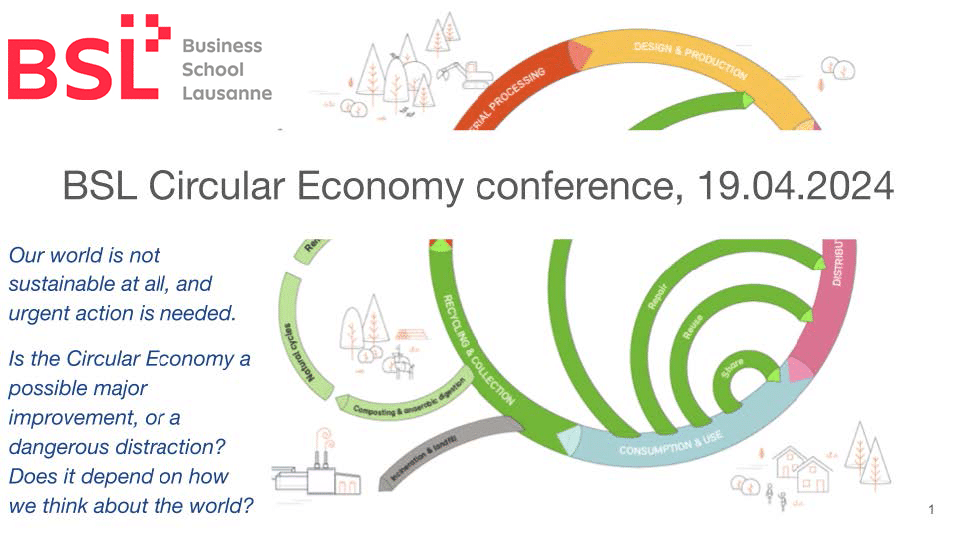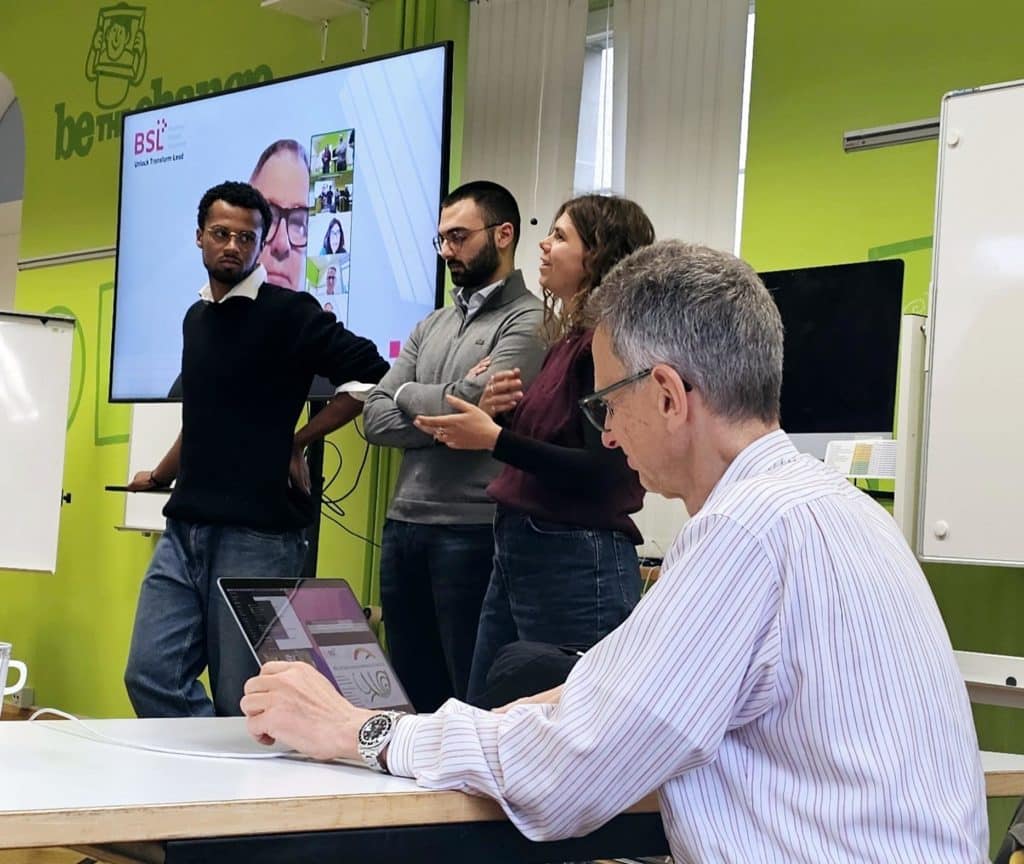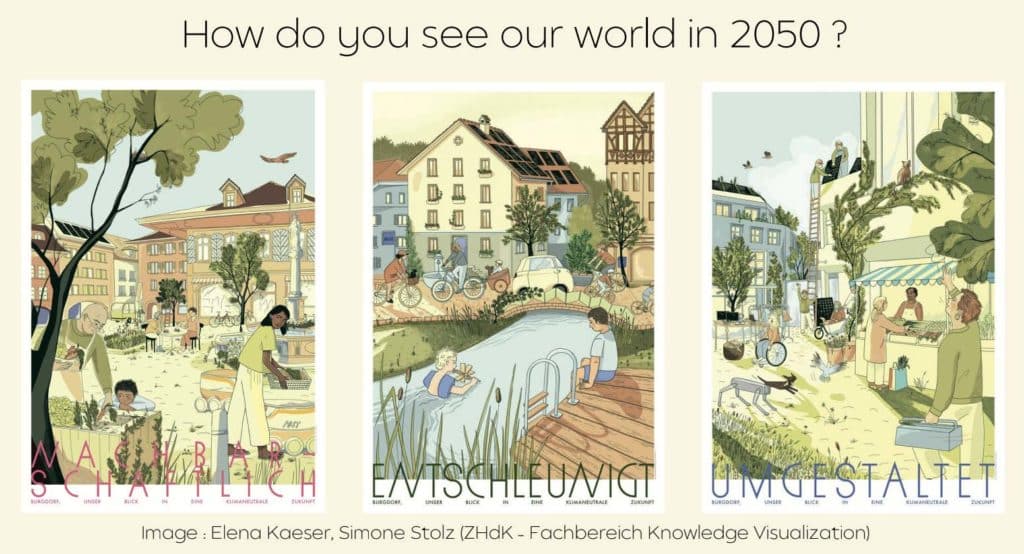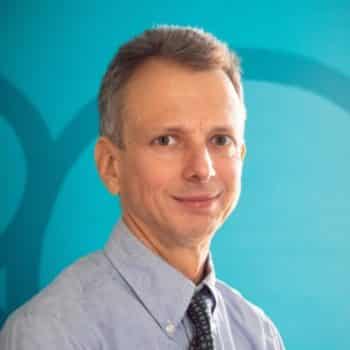
On Friday 19.04.2024, participants of the 2024 edition of the MIB1031 class “Circular Economy” and I, with the kind support of Maya, Fabiana, Laurentiu, and other team members from the BSL organized the third annual BSL Circular Economy Conference, building on the experience of past BSL CE conferences: BSL Blog 2022, BSL Blog 2023.

The conference started with my brief introduction linking big issues of society with circularity, including an overview of the multitude of approaches to the Circular Economy, followed by presentations of mini-research projects by our students:
- Tim Fischer: Imagining a sustainable and happy future: where is the CE?
- Louise Van Looveren: Can mobility be circular?
- Emile Boustany: Better food packaging for the CE

The project presentations were followed by a panel discussion, including Tim, Louise, Emile, and three practitioners of the CE, of which two BSL alumni.
- Tomer Gershtein, COO of PreciHealth
- Marco Baccalaro, Technical Director of ProcSim
- Laurent Maeder, CE practitioner and consultant
The purpose of the conference is to develop a dialogue in the BSL community around this important topic, but also give our master students the opportunity to showcase their work, and gain experience in organizing a small conference bridging science and practice. For students, conference participation, the choice of topics, and all aspects of organization were voluntary and democratically decided.
The panel was followed by an organic, vegan, healthy, and delicious aprétif, home-made by our small team, with some local wines from the BSL cellar.
Summary of the panel discussion
Introductions
Marco works in manufacturing optimization and sees a need to better emphasize circularity. Laurent has experience in textiles and believes humanity must be part of ecosystem discussions. Tomer leads a medical device startup and has previously implemented circular practices.
Humans as resources?
Laurent commented that humanity should be central to circular conversations rather than treated as a resource. Tomer asked how terms like upscaling and downscaling might apply to human factors. Sascha responded that wellbeing, not optimization, should be the focus for humanity. Tomer argued that modern economies do use people as resources, unfortunately.
Obstacles
Tomer noted unnecessary packaging and questioned barriers to reuse. Laurent agreed standardization would enable greater reuse. The group debated shifting mindsets from disposable products, suggesting focusing on quality over waste reduction. As an illustration, Pepsi went progressively from reasonably sustainable practices based on delivering concentrate to retailers, who would mix it with water and fill customers’ bottles, to today’s high-volume, global, plastic-packaged approach – taking advantage of improved manufacturing capabilities to grow, and in the process becoming hugely wasteful. Regulations and education/culture change were mentioned as tools. Further discussion explored challenges measuring and incentivizing circularity globally and across sectors.

Conclusion
The conversation covered opportunities and challenges in reimagining sustainable circular systems. The main perspectives highlighted the need to consider human wellbeing and behavior change alongside technical factors. Further discussion is required on how to enact and scale circular models in complex modern economies.
Most importantly, the transition to circularity is foremost a leadership problem, not a technical one. Engaging today’s and tomorrow’s leaders is key, and this is where the BSL community of scholars and practitioners can make the biggest impact.

Dr. Sascha NICK
Business School Professor &
Scientific Director of the Diploma in Sustainable Business
